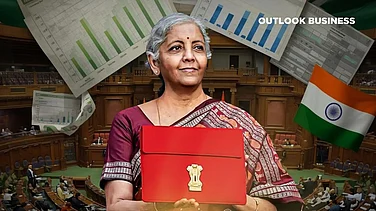In her seventh budget delivered in the parliament yesterday, Finance Minister Nirmala Sitharaman stated that energy transition would be integral in India’s fight against climate change. She announced that a policy document would be prepared to achieve balanced pathways around achieving imperatives of employment, growth and environmental sustainability.
The Union Budget 2024-2025 allocated Rs. 8,500.35 crore to solar power (grid), showing a rise of nearly 79 per cent against the revised estimates of the Budget 2023-2024. Solar energy segment received an allocation of Rs 16,394.75 crore in this year’s full budget as opposed to revised estimates of Rs 6,041.56 crore from last year’s budget. India has been exemplary in its commitment to address climate change, having already achieved two key targets that were set out for 2030. Reduction of emissions intensity of its GDP by 35 per cent and achieving 40 per cent cumulative electric power installed capacity from non-fossil energy resources were met in December 2023.
The continuation of PM Surya Ghar Muft Bijli Yojna, in line with the interim budget, and the pumped storage policy will help the country further achieve its new targets of tapping into non-fossil energy sources. Another laudable aspect of yesterday’s speech was the acknowledgment of diverse paths to adopt renewable energy. With the push for nuclear energy, advanced ultra supercritical power plants and a commitment to pursue public private partnership in setting up Bharat Small Reactors, India has shown the way forward in diversification of energy sources.
The finance minister also committed to creating a climate finance taxonomy which will address the lack of transparency around what truly constitutes green investments. This will also help India navigate climate finance, which has been a globally contentious issue. The European Union (EU) already has a climate taxonomy in place which is being used to direct investments to economic activities that can help achieve the European Green Deal Objectives.
As India makes steady progress towards the vision of Viksit Bharat 2047, maybe it is time for the country to come up with its own Green Deal. This can be based on the four pillars of simplified regulatory environment, access to climate finance, enhancement of green skills and open trade for resilient supply chains.



























